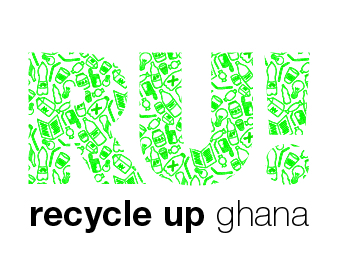Introduction
The year 2021 has been full of prospects and promise following myriad difficulties occasioned by the Covid-19 pandemic in 2020. It was officially declared that schools could officially reopen in January albeit with changes in contact hours, scheduling and structural adjustments.
As a project, these changes called for operational readjustments to cater for the new changes in the education sector. Thus, with limited access and associated restrictions on external visitations, considerations were made to utilise practicalise remote engagement with our project participating schools. Among the new plans included the use of social media campaigns to deliver relevant content to the project’s target audience and join-in radio discussions for the delivery of lessons to students and patrons in all project catchment cities; Kumasi, Accra and Cape Coast.
New ways of remote engagement through join-in radio discussions
We have engaged with 3 campus based radio stations that will help with the on-air discussions of project content. In Cape Coast for instance, on 6th February, 2021, we began our radio discussions on GBC radio highlighting Sanitation and Hygiene as essential components in reducing the spread of Covid-19. Subsequent engagements have been planned for Kumasi (Focus FM-KNUST) and Accra (Radio Universe).


Image credit: RUG-NWEC Project
The use of social media campaigns in the midst of a global pandemic
Owing to the obvious changes in terms of access to project schools, social media presented a worthy platform to explore. The coordinating team planned to utilise social media campaigns on all RUG’s social media platforms via Facebook, Instagram. The team also has created a Tik Tok account to reach the target audience which has become one of the major social media platforms for our project’s target group. Our bi weekly posts on Facebook have generated engagements with over 60,000 people within the project’s target age of 12-17 years.


Image credit: RUG-NWEC Project
State of project participating schools
Following the coordinator’s reassuring visitations, the project will continue in our participating schools regardless of the challenges caused by the changes in the current educational schedules in Ghana. We have employed the use of social media to deliver relevant content, campus based radio training to deliver discursive conversations, and lesson delivery in schools that permit visitations. All 18 project participation schools have affirmed their commitment and our engagement with them continues unabated.
The Nationwide Waste Education Campaign in the Greater Accra region involves 7 schools with a total population of over 9000 students and staff. Kumasi in the Ashanti region of Ghana hosts six schools with a total of 6955 people directly affected by NWEC – 6620 students and 335 teaching and non-teaching staff. Among the various projects held in the schools, NWEC has been adjudged the most impactful with the teaching and non-teaching staff participating fully to ensure the success of the project.
Cape Coast has 5 elementary schools with a total of 188 student members of the Recycle Up Ghana clubs in the various schools, however, the impact of this club is felt by each member of each school (students, teaching and non-teaching staff).
Education
Overall, developed lessons for all streams (Primary, Junior High and Senior High) are being used to educate students. Due to continuous changes in academic scheduling in our partner schools, lessons and official engagement by Interns started in March, 2021. All the lessons are designed to portray how our actions affect the environment, the climate and living organisms. Also, they are taken through a series of practical processes which are channelled at solving these problems.
Collection
Plastics collected are either sent to a recycling firm or upcycled by students as part of their activity-based lessons by identifying the various recyclable plastics and their possible uses. The schools are motivated to ensure that these recyclable plastics produced on the school compounds are up-cycled or taken to the recycling firms. Collection in the various schools for the 2021 academic year started in early February following the official reopening of schools in mid-January. Immediately schools reopened coordinated collections were organized throughout project schools in Accra, Cape Coast and Kumasi. In terms of numbers, 658kg and 1075kg bottles have been collected. These also include all collected piles that were done in 2020 before closure of schools.


Image credit: RUG-NWEC Project, Collected piles being weighed at the Premier Waste premises
Concluding remarks
Although greatly impacted in terms of flow by the Covid-19 pandemic, the NWEC project holds promising prospects in terms of continuity. Our scheduled social media campaigns have particularly proven to be a positive way of reaching the target audience. The commitment levels of our project participating schools have been massively reassuring. All our 18 interns are poised and well positioned to continue their engagements following their recruitment and virtual training for the 2021 cohort. Also, following partnership discussions with some of the world’s authoritative organizations such as DW’s Global Ideas, 5 Gyres etc. well versed in educational content creation and lessons delivery, we are more than optimistic that the project will produce an all encompassing education manual that can inform proper waste practices and education in schools in Ghana and elsewhere. In the next quarter, attempts will shift to partnerships for our identified goals where we will engage in TV interviews and discussions with the authorities in charge of educational policy implementation.
In sum, we look forward to greater influences in the Ghanaian educational landscape, more authoritative engagement and strategic partnerships that will seamlessly aid us in achieving the NWEC project’s outcomes.


You must be logged in to post a comment.